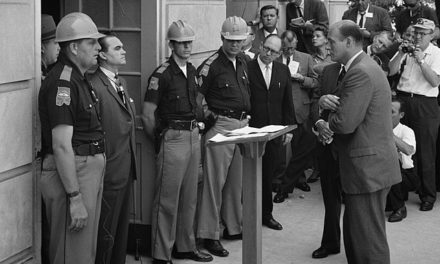Despite predictions of a Constitutional crisis in county government if we don’t pass the two charter amendments, we still vote no.
Meanwhile, on IRV, we vote yes.
First, the county charter amendments. There are just too many reasons to vote against them, chiefly that there is no justification for the covey of elected officials that should be staff jobs within the county administration.
No Again
We voted it down on the August ballot, but county officials were slow to get the message and put it up for referendum again. It’s a classic case of a tone deaf decision based more on political calculus than on the practical opportunity to improve the efficiency and economy of county operations.
As one former county mayor once described it, the county’s organizational structure is tantamount to holding Fred Smith accountable for FedEx’s performance, but without giving him control over FedEx Ground.
It wasn’t supposed to be this way. When county government was restructured in 1974, the lumbering three-headed administration was scrapped in favor of a single county chief executive to be called a mayor, an appellation that allowed him to elbow his way into a spotlight previously reserved for the Memphis mayor.
More Efficiency
But the rhetoric far outstripped reality. Even when home rule was approved a decade later, it did not stop Shelby County Government’s repeated forays to the Tennessee Legislature to plead for powers automatically given to cities and their mayors.
In the past 20 years, there’s been no serious study of how the county structure could be changed to improve its operations and deal with an entrenched culture that repulses innovation. Unfortunately, with the opportunity now to reduce the inefficiency that comes from the county’s Hydra-like structure, county commissioners blinked when given to consider what county government could be rather than what it is.
We had predicted that county government in the end would take the path of least political resistance and do nothing to improve things. Unfortunately, we were right. The only way to send the strongest possible message about our frustration and about the need for a more streamlined government structure is to once again vote against the charter amendments. And that’s just what we plan to do.
Instant Winners
Meanwhile, Instant Runoff Voting gives our community a chance to be a trend setter. It’s a proposal that could be the antidote to costly runoff elections where often a tiny percentage of voters determine the winners.
It could be different. There is a way that it can be cheaper, more efficient and the results could be immediate. That’s the beauty of Instant Runoff Voting. Memphis voters would no longer have to vote twice to get a winner. On election night, a majority winner would be proclaimed.
The Process
Here’s how it works:
When voters go to the polls, they vote for candidates in order of their preference. The pick their first choice, their second choice, their third choice, and so on.
If a candidate wins a majority, that person obviously is the winner. If there is no candidate with a majority, all ballots are recounted, and the candidate receiving the least number of first place votes is eliminated. The ballots are counted again, and voters who chose the eliminated candidate now have their votes counted for their second-ranked candidate. The weakest candidates are progressively eliminated and votes redistributed until a single candidate has a majority of the votes.
In this way, IRV offers the chance for better voter choice and wider voter participation in selecting the winner, because it allows voters to vote for their favorite candidate without the fear that they are helping to elect their least favorite candidate.
It Works There
For five years, San Francisco has been using IRV, and the response from the public has been highly supportive. Soon, Oakland and Minneapolis will add the instant runoff to its election process after voters overwhelmingly approved it at referendum.
North Carolina is beginning to use it in certain judicial races, and Arkansas, South Carolina and Louisiana use the ranked ballot for overseas and military voters. Meanwhile, Ireland uses it in its president’s election, London in its mayor’s election and Australia for its House of Representatives.
Instant Runoff Voting has been credited with reducing negative campaigning. Because candidates aren’t just campaigning for people’s votes, but also for second and third rankings, it means that they are less likely to vilify opponents whose supporters can mean the difference between victory or defeat.
Change For The Better
No part of American society is more resistant to change than the public sector, but voters have the opportunity to strike a blow for innovation in our election process by voting yes on this referendum. One Commission member has said IRV is too complicated for Memphis voters, a pretty damning statement considering that all it does is require voters to rank candidates 1-2-3.
So far, some people seem perplexed by IRV, saying that it’s not easy to explain. Then again, it’s a lot simpler than the electoral college which decides who will be elected to the highest office in the land next week.
It would be exciting if Memphis could be known for its commitment to progressive policies for a change. IRV is one way to do it.



